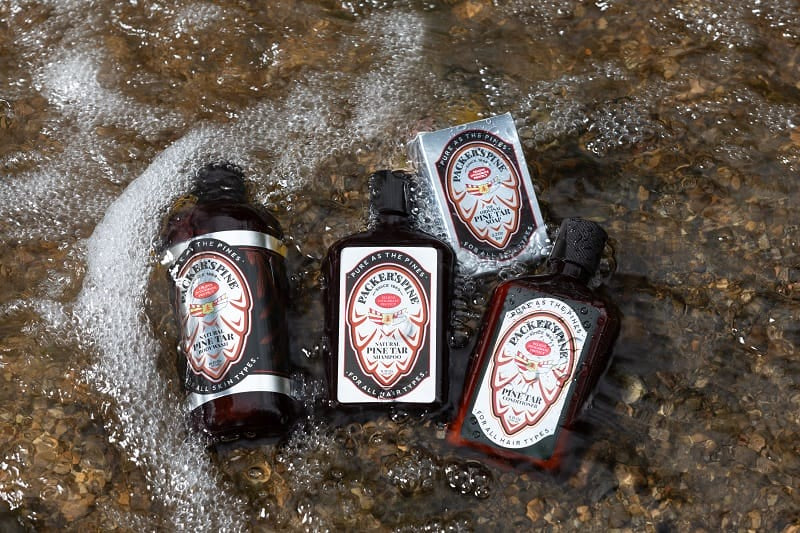Ditching the Chemical Lifestyle: 3 Areas of Life to Detoxify

Did you have a really embarrassing high school nickname you couldn't escape?
You don't have to share it with us (although we'd love to hear it and are great at keeping secrets), but those names tend to linger. Maybe your best man brought it up in his toast at your wedding, or it rang in your mind on a date and messed with your confidence. Even if it was years ago, you're probably thinking about it right now.
Introducing the Chemical Lifestyle: The adulting equivalent of your terrible high school nickname.
These names sticking around are kind of how the chemicals that are all around us work. Some of them are nice, like the compliment the cute girl in your math class gave you sophomore year. Others are like that nickname. You can't escape chemicals altogether, but you can make the ones around you more like that compliment and less like that nickname.
Everything from the food you eat to the skincare products you use has chemicals that can cause cancer, screw around with your hormones, and more. The effects of some of these chemicals can be felt for years.
So, what are we gonna do about it?
Well, we decided to simplify the process of ditching this Chemical Lifestyle by calling out three areas of your life that need a chemical cleanup and sharing ideas for detoxifying them. Lastly, we’ll explain why ditching chemicals will benefit you and your family. We know we aren't that cute math class girl, but we’re hoping the things we say will stick… unlike anything you learned in math class.
Area #1: Your Food
Bad news: A lot of the food you eat has chemicals you can't pronounce and more that aren't great to have inside your body.
Good news: There's a way out of it, and it's eating organic.
Organic foods are widely available and free from pesticides, toxic metals, growth hormones, and genetically modified ingredients. Traditionally, organic foods have been more expensive than their ordinary counterparts, but that price gap is shrinking, and the benefits of organic are worth the slight price increase.
Much of the produce sold in supermarkets that aren't certified organic is treated with pesticides that latch onto the fruit or vegetable, even after you've washed it. Studies have found that pesticides in food put you at an increased risk of cancer and reproductive issues.
Plus, eating organic means produce and meats are grown in humane and environmentally friendly ways. Not only is it good for you, but it's good for the planet.
Area #2: Your Kitchen
Okay, now that we've cleaned up your food, it's time to clean up what you eat it on, cook it with, and store it in.
Plastic products like Tupperware, water bottles, and cutlery can have a chemical called BPA. Bisphenol A can leach into your foods and into you, which can cause infertility, hormone disruptions, and certain cancers. Replacing these products with metal, glass, porcelain, or ceramic alternatives is a great way to reduce the BPAs in your home.
Even though they are so darn convenient, those coated non-stick pans are also a real problem when avoiding unnecessary chemicals in our lives. Many of them are coated in a chemical compound known as Teflon. Teflon keeps your food from sticking to the pan but is also used in car parts and lightbulbs.
When your non-stick pans scratch, as they often do, this chemical compound ends up in your food. Unfortunately, Teflon has been linked to cancers, high blood pressure, and higher cholesterol. Making the switch to stainless steel or cast iron cuts Teflon risks out of your life.
The pan may not be non-stick, but cooking with oil that has a high smoke point, like butter, coconut oil, or avocado oil, can help, and these pans naturally become less sticky over time.
As a bonus, cooking with cast iron helps you get more natural iron in your diet, which is excellent for those with anemia and other low-iron disorders.
Area #3: Your Bathroom
Your skincare routine is loaded up with tons of toxic chemicals. Artificial fragrances in cologne, perfume, makeup, and soaps can be endocrine disruptors that mimic your natural hormones, and makeup products can have cancer-causing carcinogens. Soaps and shampoos, in particular, have some nasty ingredients, which doesn't even make sense because they're supposed to keep you clean, right?
Many soaps and shampoos have sulfates that are clean but leave your skin dry, and they are known carcinogens. Parabens keep products from expiring but disrupt your hormones and can cause reproductive issues, as well as neurotoxicity. Additionally, lots of soaps use heavy-duty detergents that strip your skin of both the good and the bad bacteria and oils and are too aggravating for those with sensitive skin, eczema, dermatitis, and the like.
Switching to a natural soap or natural shampoo is a great choice. These products are just as effective at cleaning you up but don't tear down your skin barrier or have you worried about nasty ingredients and their side effects.
Making the switch to a lifestyle that prioritizes good chemical health takes a little bit of effort, but freeing yourself from ingredients that can cause cancers, hormone and reproductive issues, as well as just general health problems, is always a good choice. Now, lose that terrible nickname (and these chemicals) and go find math class girl.
Infographic
Switching to a lifestyle that prioritizes good physical health may require some effort, but it's worth it to remove harmful ingredients. Check out this infographic to learn about the three areas of life that you can detoxify.




